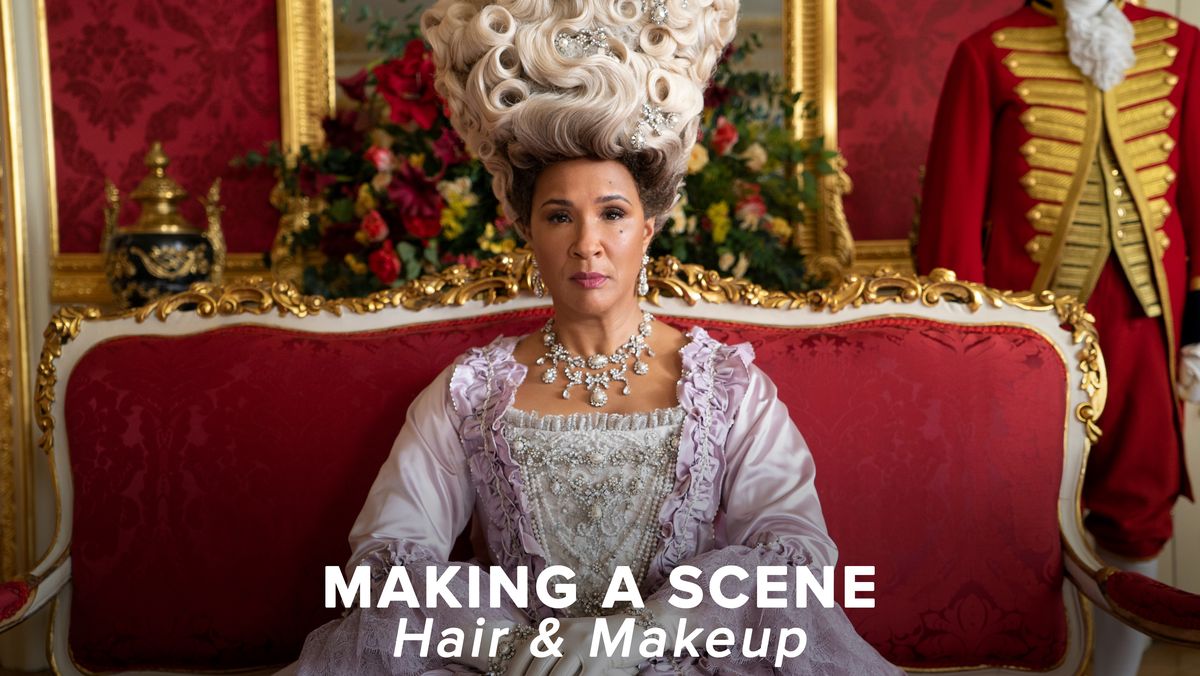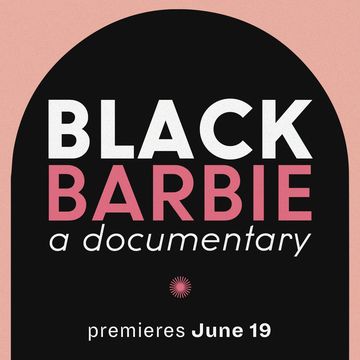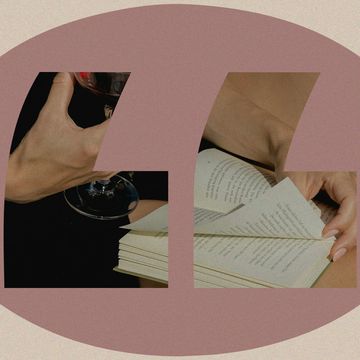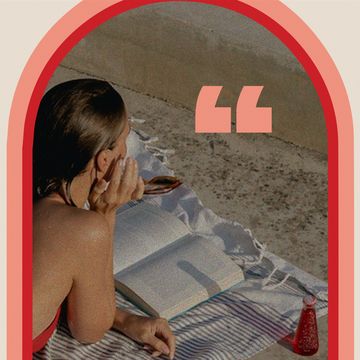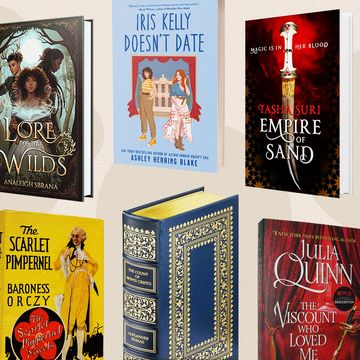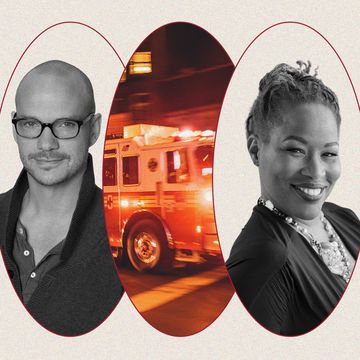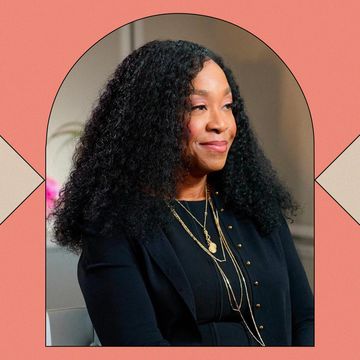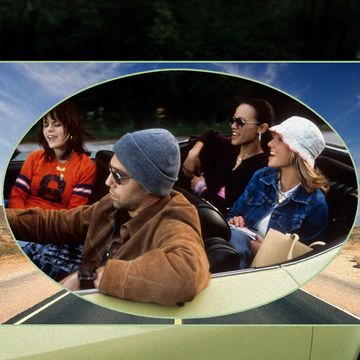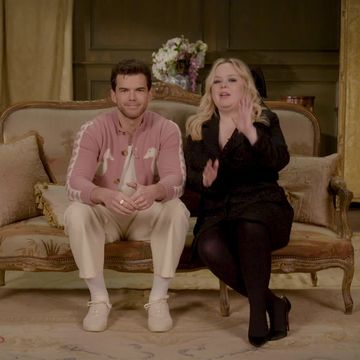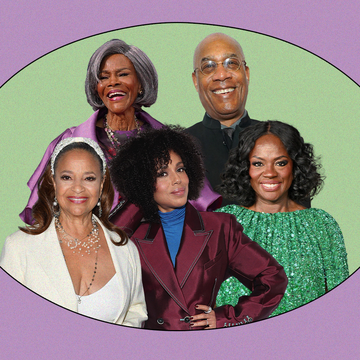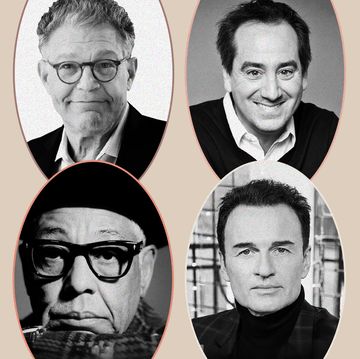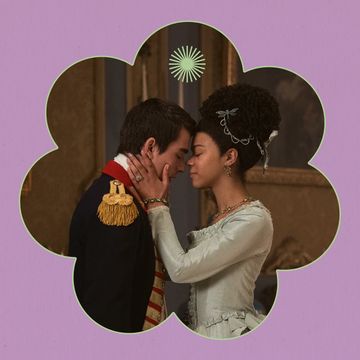Andrew Koji will be the first to admit that Warrior saved his life. Back in 2017, Koji, a little-known actor whose biggest credits included stunt doubling for Sung Kang in Fast & Furious 6 and guest-starring on the BBC dramas Casualty and Call the Midwife, was ready to call it quits when, at his mother’s suggestion, he auditioned for a new period crime drama based on the writings of martial arts legend Bruce Lee. “I had stopped martial arts for about eight, nine years, I had completely neglected my body, but the one thing I knew I could do is that I’ve got all this emotion and rage, which I understood when I saw Bruce’s stuff,” Koji tells Shondaland on a recent video call.
The producers, who had spent months auditioning martial artists who struggled to act and actors who were trying to do an imitation of Lee, quickly took notice. “What was most important to us was someone who brought his own character to the role, who seemed thoughtful and vulnerable and damaged and complicated,” creator Jonathan Tropper says. “Koji’s tape was one of the last we saw. He was in a dimly lit garage, and he wasn’t at all what we were expecting, but there was a burning intensity in his take and a look in his eye that got us all excited.”
That raw ferocity, reminiscent of Lee’s best-known on-screen work, was enough to earn Koji his breakout role, transforming him from struggling artist to leading man. Since landing on Hollywood’s radar, Koji has parlayed the success of Warrior into supporting roles in Snake Eyes: G.I. Joe Origins (in which he played the ninja Storm Shadow) and Bullet Train (in which he starred opposite Brad Pitt, Hiroyuki Sanada, and Brian Tyree Henry), as well as the forthcoming Boy Kills World and Worth the Wait.
For three seasons on the criminally underrated drama series Warrior, which is set during the brutal Tong Wars in 1870s San Francisco, Koji has played Ah Sahm, a Chinese martial arts prodigy who first crossed the Pacific in search of his sister, only to discover that she is the boss of a tong and be forced into one of the rival gangs as a hatchet man. In a case of art imitating life, Ah Sahm’s emotional evolution has paralleled Koji’s own journey.
“Ah Sahm is a stranger who has come to this new land, and it’s very similar to Andrew coming into this new set [in Cape Town],” explains Koji, whose understanding of his craft — and the challenges of balancing the creative and economic sides of film and television — has dramatically shifted in the last five years. “I’m suddenly the top dog. There’s a lot that’s being asked of me, and there are a lot of things I have to try and conceal about myself because I can’t go to everyone, like, ‘Listen, I’m freaking the f--k out. I want to run away. I want to give up.’”
That kind of candor is both rare and refreshing to hear from the lead of a hit show, who admits that despite the recent increase in opportunities for Asian actors, he still questions how much he wants to work in Hollywood. “The more I learn about the business, the more I want to run away from it. But I go, ‘What would I do apart from this?’ And I think there’s a part of me which will always probably be a creative because it’s healing for me,” Koji says.
Born in Surrey, England, to an English mother and a Japanese father, Koji, a self-described introvert, grew up making home movies and watching the likes of Marlon Brando, Daniel Day-Lewis, Philip Seymour Hoffman, and Heath Ledger. But as he struggled to process his own feelings of displacement and faced bullying and casual racism for his Asian features, Koji gravitated toward the work of Jackie Chan “because he was the only one who looked like me,” he recalls. “As I was struggling to connect with the world myself, I found films, and that kind of brought me an escape, a feeling of connection to humanity, and an understanding of myself as well.”
After graduating from high school, Koji moved first to Thailand and then to Japan, hoping to kick-start his career and learn more about how films are made in Asia. But as a mixed-race actor, he found himself facing the same roadblocks that he had encountered in the U.K. When his idea for a feature film resulted in “a bit of a meltdown,” Koji moved back to England and found an acting school, where he recalls feeling “in the zone completely” for the first time. “I was like, ‘Oh, expressing myself and channeling it into this creative process can somehow move other people,’ and that’s when I started to feel like this is something I think I need to explore more.”
Koji has felt a similar catharsis on Warrior, a pulpy martial arts show that has stretched him to the limit. After landing the role, Koji, knowing that he would have to maintain about 7 percent body fat and learn high-octane fight sequences for each episode, underwent an intense physical transformation in three months, but he spent a month in South Korea before the second and third seasons to train with masters and sharpen his skills as a martial artist. “It can be empowering and therapeutic for me, as tough as it can be. Sometimes, it’s nice to scream and just use all your energy and get out of your head,” Koji says with a smile.
Koji’s work ethic sets the tone for the rest of the cast and crew, says Tropper. “Any day he’s not acting, you’ll find him at stunts working on his fights. And if he’s not working on his fights, he’s doing physical training. We actually have to ask him to take breaks. When your No. 1 works as hard as he does, everyone else is inspired. On top of all that, he’s incredibly humble and warm, always ready with a smile and hug, and so he’s very well liked by his peers, who are all awestruck and protective of him.”
Shannon Lee, who has spent most of her life safeguarding her father’s legacy, recalls being drawn to a “sincerity” in Koji’s initial audition that made him “most like my father without imitating him” at all. “He gives everything his all, and he has a sense of humor and a warmth. I guess in that way he reminds me of my father as well — work and play,” she adds.
Having learned from working with other leading men like Pitt, Cillian Murphy, and John Malkovich, Koji is quick to point out that he is only as good as the people he works with. But there is no denying that the actor, who has learned to take better care of himself and repeatedly reiterates the importance of fostering a collaborative work environment built on mutual respect during our wide-ranging, hour-long conversation, has developed a cool and quiet confidence that has bled into his character.
After helping to defeat the Irish, who were convinced that the Chinese had taken their jobs, in the Chinatown riots at the end of the second season, Ah Sahm will now have to decide if his loyalty lies with Young Jun (Jason Tobin), the hotheaded leader of the Hop Wei tong who has become like an adopted brother to him, or with Mai Ling (Dianne Doan), the no-nonsense leader of the rival Long Zii tong who also happens to be his estranged sister.
“Ah Sahm has never really been a hatchet man. Just like Andrew never felt comfortable in that suit, I think Ah Sahm never really felt like that was his thing,” Koji teases of his character’s inner struggle, which comes to a head in the finale. “The Chinatown riots opened [the Chinese characters’] eyes a lot to the reality that deep down, we are on a similar side, even though there is the question of loyalty and the labels of the tongs. But in [the lawmakers’] eyes, we’re just vermin, so I think that changes Ah Sahm’s priorities a lot, especially around his sister.”
As he waits to see if Warrior will be renewed for a fourth season (the show was revived by Max in 2021 after being unceremoniously canceled by Cinemax), Koji has begun to ponder his next move. He recently wrapped production on Worth the Wait, an independent romantic comedy marking the U.S. directorial debut of award-winning Taiwanese filmmaker Tom Shu-Yu Lin. “It’s an interconnected story of all these different kinds of love stories, and it just so happens that the cast is all Asian,” teases Koji. “It’s not about being Asian; it’s just that I think that the cast is really strong. There was some magic about shooting that. I’m paired up with Élodie Yung, and I think we bounced off each other and complemented each other well.”
For someone who has never been interested in fame, Koji recently (and begrudgingly) joined Instagram at the behest of his friends and colleagues. “I’ve got a social media manager; I’m not actually running it because I think it’s bad for the industry,” he admits. “The last three jobs that haven’t turned out my way were because of social media followers or your ‘influence,’ and it should be about your f--king craft.”
That is one of Koji’s many incisive criticisms of the Hollywood machine, which he argues “has become this overly commercialized, content- and product-based factory mill” run by executives with little regard for the creative process.
“The problem is a lot of people in this industry who are making movies don’t actually love movies. It’s just a side hustle for them. They’re making money in different areas, and making films is just a cool thing for them to be doing,” laments Koji, who supports the ongoing WGA strike and the potential SAG-AFTRA strike. “You can become a film producer if you’ve just got money and the right connections, and you can have creative say, and that’s fundamentally wrong. Those people are part of the downfall of this industry, of the art form. We have to start speaking out about it, addressing and challenging it.”
And what does he think is the next step in Asian representation? “I guarantee every single actor of Asian descent I know never went into this industry going, ‘I want to be an Asian actor.’ They wanted to be an actor, and then the idiots of the industry box them in as Asian. Everyone in this industry just wants to act, and they want to be part of telling good stories,” says Koji, noting the lack of Asians in cultural juggernauts like Game of Thrones, The White Lotus, Succession, and Stranger Things. “I guess the one thing that I’d try and urge people in the community to do is just keep developing and creating your own stuff. Some people are just performers and don’t have that creative or writing aspect to them, but I think it’s about creating your own work and having to come to peace with the fact that this industry is in chaos right now. I think there’s a lot that needs to change.”
The third season of Warrior is now streaming on Max.
Max Gao is a freelance entertainment and sports journalist based in Toronto. He has written for The New York Times, Los Angeles Times, NBC News, Sports Illustrated, The Daily Beast, Harper’s Bazaar, ELLE, Men's Health, Teen Vogue and W Magazine. Find him on Twitter @MaxJGao.
Get Shondaland directly in your inbox: SUBSCRIBE TODAY


